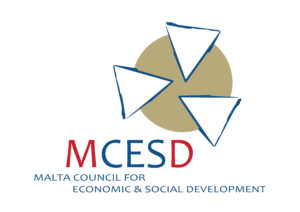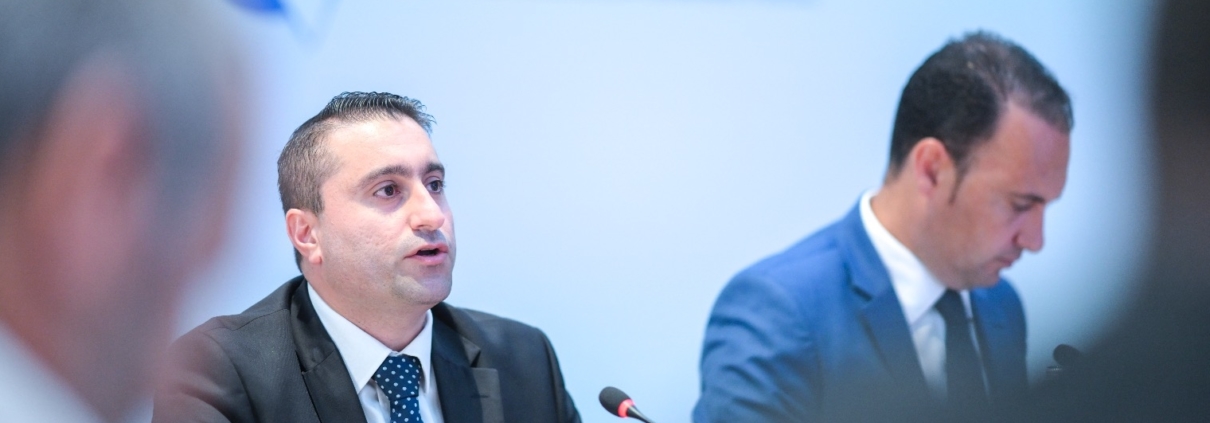National Education Strategy 2024-2030 in the Spotlight at the MCESD Council Meeting
During the meeting, the Ministry for Education presented its vision for the future, driving a transformative approach to education. The presentation was delivered to the social partners forming part of the MCESD Council.
The Council meeting was addressed by the Parliamentary Secretary for Social Dialogue, Hon. Andy Ellul, and the Minister for Education, Sport, Youth, Research, and Innovation, Hon. Clifton Grima, accompanied by the Permanent Secretary for Education, Mr. Matthew Vella.
In his address, Hon. Andy Ellul underscored the pivotal role of education in shaping the nation’s economic and social future, emphasising the significance of social mobility as a pathway to success for all citizens. He also highlighted the importance of upskilling and reskilling as essential elements in shaping the future of the country’s prosperity.
Minister Clifton Grima acknowledged the technological and economic developments of our era and stressed the need to identify and transform key aspects of the country’s education system. He emphasised that this is being realised through ongoing dialogue with stakeholders to better comprehend national needs and the aspirations of its citizens.
During the meeting, Mr. Matthew Vella provided a detailed presentation to MCESD Council members, together with representatives from the University of Malta and MCAST. He elaborated on the work being undertaken to design the national education strategy for 2024–2030.
Mr. Vella explained that the strategy’s objective is to align with current needs while considering future requirements in social and environmental contexts. It aims to prepare students as lifelong learners equipped with essential skills for the future with clear values and ambitions.
Throughout the meeting, the social partners actively engaged in discussions related to the transformation of the country’s education system, recognising its broad-reaching impact on various aspects of the nation, including the quality of life for both workers, employers, and citizens at large.
Concrete proposals were put forth by the social partners, emphasising the importance of prioritising skills and trades, which are currently lacking in the labour market. They also discussed the need for a robust monitoring system to ensure the effective implementation and evaluation of the strategy. Furthermore, the social partners stressed the importance of equipping students with cross-sectoral skills, encompassing behaviour and personal qualities, to enhance collaboration and problem-solving abilities.
The meeting highlighted the necessity for professional and high-quality guidance services for students, as well as the importance of improving collaboration and synergies between the University of Malta and MCAST, which is considered a must. There was consensus on the need to enhance apprenticeship experiences to further develop students’ skills and foster critical thinking.
Discussion suggested that education is not solely a process of preparation for the labour market but a holistic personal development opportunity. Increased support for individuals with disabilities to foster independent living skills was advocated, and the importance of prioritising mental health in schools was emphasised.
The MCESD insisted on the need to align this strategy with other national strategies and intricately coordinate it with Economic, Environmental, Social, and Governance (ESG) principles. This collaborative approach is a must for national economic and social transformation.
The presentation on Visioning the Future by Transforming Education, can be accessed here.



